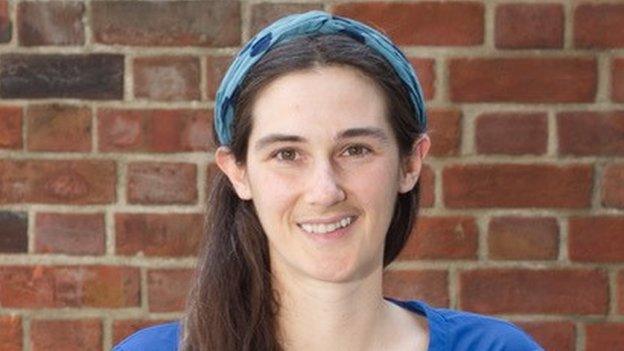Was a Rayleigh farm worker wrongly executed for arson?
- Published
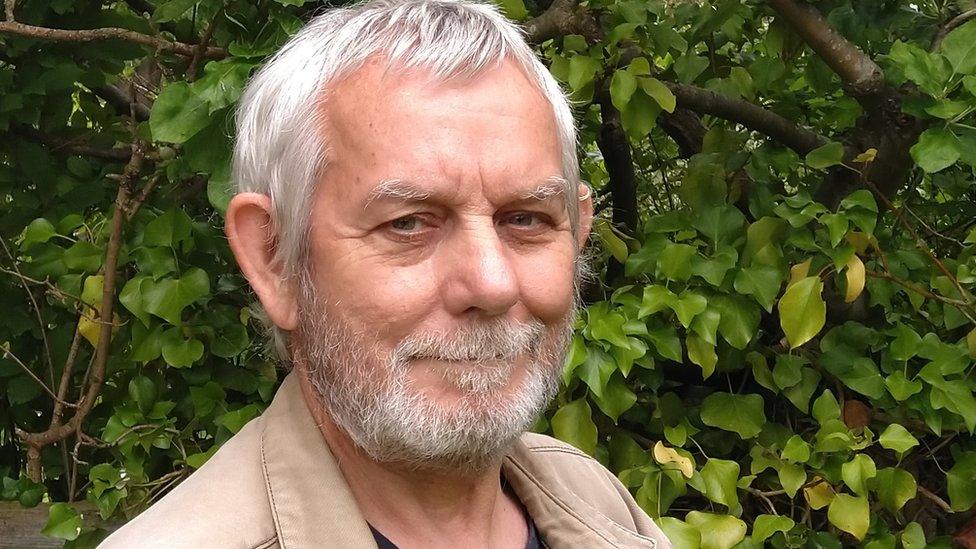
Mick Ekers, who lives in Leigh-on-Sea, became fascinated with Mr Ewen's fate after finding a brief reference to the case while studying for a history degree at the University of Essex
Nearly 200 years ago a father to two young girls was sentenced to death for torching a farmer's barn. But a mature student has found that the execution of James Ewen was both likely a miscarriage of justice and, in an unusual twist, presented his research findings in the form of a song.
"It was all a foregone conclusion," says 69-year-old Mick Ekers about the execution of Mr Ewen in 1830. "They needed somebody to execute as a warning to others, even if that person was innocent."
Mr Ewen was a 36-year-old farm labourer in Rayleigh, Essex. He was married to Elizabeth and had two little girls, Elizabeth and Mary.
Accused and convicted of setting fire to a barn belonging to John Sach, of Peverils Farm, Mr Ewen was executed at Chelmsford on Christmas Eve.
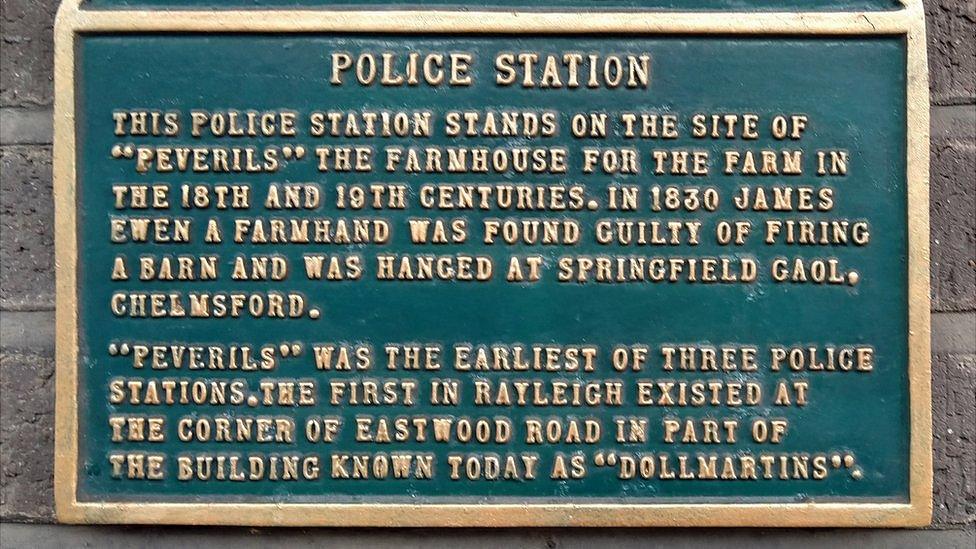
Mick Ekers, who lives in Leigh-on-Sea, became fascinated with Mr Ewen's fate after finding a brief reference to the case
Mick Ekers, who lives in Leigh-on-Sea and who previously enjoyed a successful career in IT, became fascinated with Mr Ewen's fate after finding a brief reference to the case while studying for a history degree at the University of Essex.
"I was interested in working class history and I thought I would do something local to where I live.
"I came across a couple of pages on this case, spoke to the museum and saw the pathetic plaque at the police station."
As Mr Ekers delved ever deeper into the story, he became increasingly convinced there was something deeply amiss about the prosecution and trial of Mr Ewen.
You might also be interested in:
Mr Ekers's degree thesis, although accompanied by a 15,000 word supporting document, is a seven minute folk song in the style of a 19th century broadsheet ballad.
Written by Mr Ekers and arranged by Kate Waterfield, the song will be performed for the first time publicly at the 2022 Leigh Folk Festival which runs from 23 June to 26 June, external.
Dr Andrew Priest, head of history at the University of Essex, said: "[Mick's} argument that historians need to take popular song much more seriously completely convinced his examiners who recognised the extremely high-quality and creativity of his project as well as the potential impact that such public presentations of history can have on people's understanding of the past."
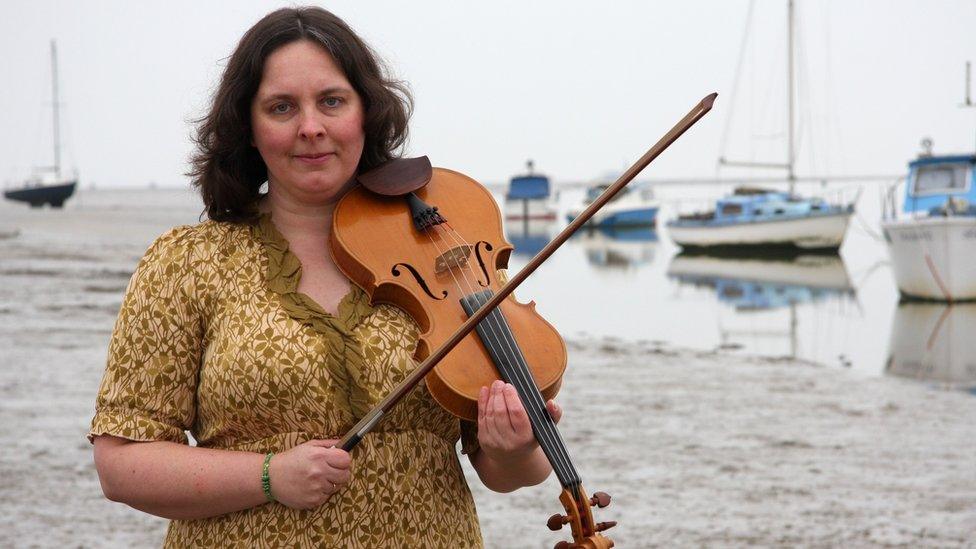
Kate Waterfield arranged the ballad for Mr Ekers
The Rayleigh farmhouse fire occurred amid a wave of protests among rural communities in the south east of England known as the "Swing Riots"- so called because the incidents were accompanied with letters signed by a "Captain Swing".
The grievances of those involved included poor working conditions, low wages and new machines which reduced the amount of work available for those seeking employment.
By 1830 workers like Mr Ewen were no longer employed by farmers on an annual basis and so often struggled to make ends meet outside of the growing and harvest seasons.
Mr Ewen had worked for Mr Sachs and a number of other farmers in the area, says Mr Ekers.
According to Mr Ewen's account, he was woken by his wife on 6 November 1830 after she spotted a bright distant light through the window.
Realising it was a barn on fire, Mr Ewen got up and went to help, fearing the fire might spread to other nearby buildings.
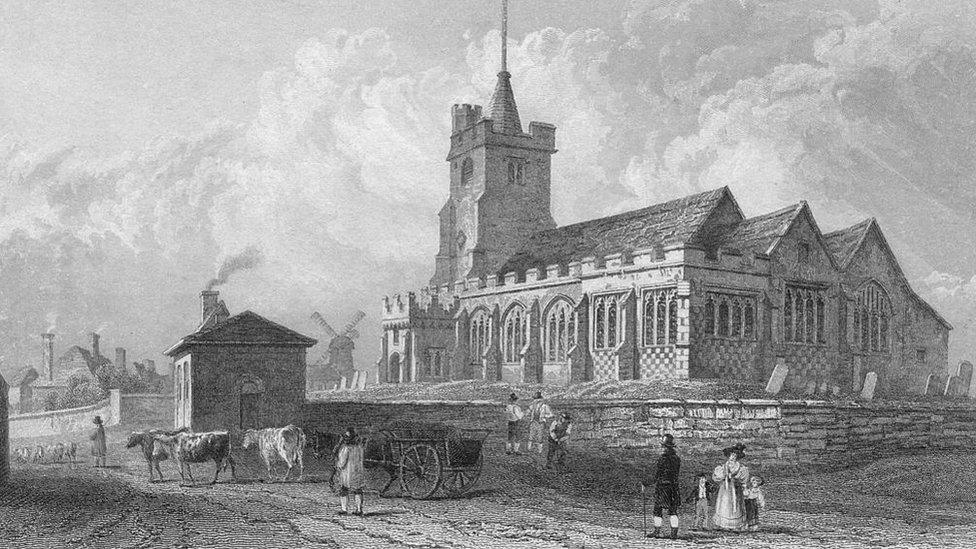
Rayleigh in the 1830s was home to about 120 houses, two churches and about eight shops
Court records tell how he pitched in with others to distribute water to tackle the flames.
After the fire was brought under control, they went to the Crown Inn on Rayleigh's High Street.
Mr Ekers, who spent nearly a decade researching a book about Frank Zappa's music equipment, says: "Apparently a large amount of alcohol was then consumed by the fire fighters, and there is some debate whether Ewen was drunk, and may have made rash statements or been entrapped while under the influence of alcohol."
One of the men at the pub was Joseph Tyrell who claimed Mr Ewen said to him "this is just as it ought to be, it is just as many ought to be served".
He also accused a man seen talking with Mr Ewen called Jonathan Richardson.
Both men were arrested and sent to Chelmsford Gaol.
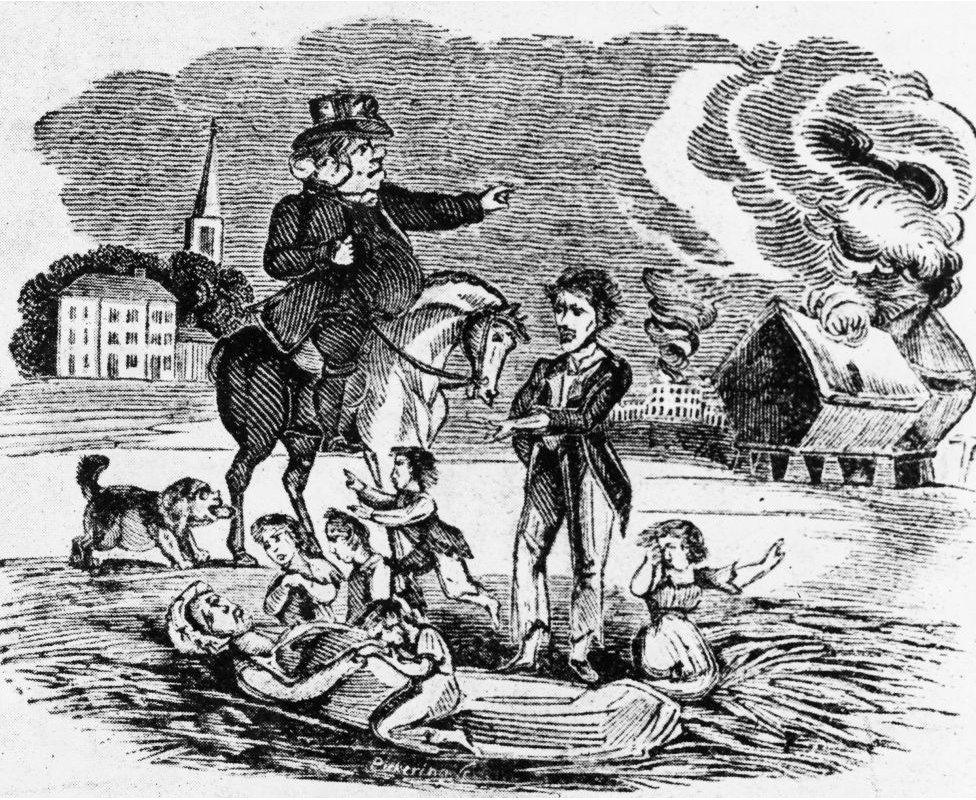
Protests, rioting and arson occurred across southern England in 1830 in response to unemployment and low wages among agricultural workers
Mr Ekers tells how the newly elected Whig government of 1830 was determined to be seen as tough on the protesters.
Circulars were sent to magistrates and those in positions of power demanding the swift and harsh "repression of tumult" in the south east.
And in November a royal proclamation confirmed that anybody providing evidence that secured the conviction of a rioter would not only get a "most gracious pardon" but a sizeable reward.
"The government was worried about revolution," Mr Ekers says.
At a pre-trial hearing, Mr Ewen's co-accused, Mr Richardson, asked to speak with magistrates.
Exactly what was said is unclear, but by the time Mr Ewen went before a jury, Mr Richardson was no longer in gaol and was a witness for the prosecution.
In twenty minutes the decision was made | a verdict of guilty the jury returned | the judge said James must be hanged until dead | and Expect No Mercy In this World
Judge Taunton, who oversaw the case, linked the trial of Mr Ewen with the wider "Swing Riots" at the outset.
"It was an astonishingly forceful direction to the jury," says Mr Ekers, "even by the standards of the time, on how they were expected to treat Ewen's case.
"It became clear to me that an injustice had taken place and when I started looking into it nobody had really covered the direction the judge gave to the jury in his one hour spiel, which spoke to the risk of the riots and how they might come to Essex.
"The jury was made up of farmers who were fearful of rioting."
The speech, says Mr Ekers, told Ewen to "expect no mercy in this world".
"Not mentioned during the trial was the fact that Tyrell had a criminal record for making false accusations to obtain reward," says Mr Ekers.
Petitions were lodged against the conviction.
One, from a friend of Mr Ewen called James Brown, external, said: "There is no evidence to establish that Ewen was present at the site of the fire when this was started or that he left his house during the night, which would not have been possible without passing through his landlord's bedroom."
But within days of his conviction, on 24 December 1830, Mr Ewen was hanged outside Chelmsford Gaol.
Some time later, two people were arrested for arson in Maidstone. They confessed to setting the fire in Rayleigh.

Find BBC News: East of England on Facebook, external, Instagram, external and Twitter, external. If you have a story suggestion email eastofenglandnews@bbc.co.uk, external
Related topics
- Published20 March 2022

- Published11 June 2021
